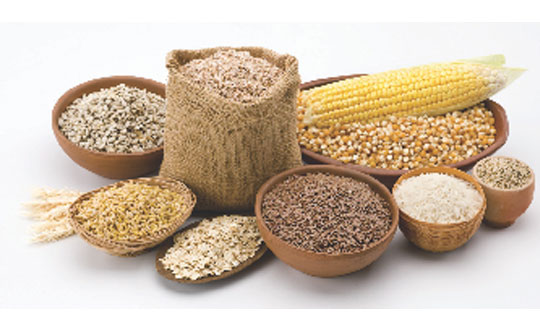Extended lockdowns are now implemented by countries across the world to contain COVID-19 outbreak. This has led to people stocking up their food supplies, shortage of labour due to reverse migration, trade restrictions and it has resulted in disruption of the agriculture supply chain. Among many countries, Malaysia has stopped export of palm oil, Vietnam has curbed rice exports, Russia has halted grain exports and Kazakhstan has suspended exports of wheat flour, buckwheat, sugar, sunflower oil, and some vegetables. While taking this crisis as an opportunity, we will have to find ways to respect and grow crops native to our country. While one is naturally attracted towards imported food like quinoa, avocado, kiwi, stone fruitetc, it is time when we all should support our farmers and encourage local food.

Here are some reflections on how we can reduce the burden on our food systems in these unprecedentedtimes-
- Encourage local food:It has become clear that a shift in our dietary pattern is required to find a balance with nature that is sustainable. Supporting regional and locally produced food can go a long way in aiding the environment, economy and health. It also leads to a more sustainable consumption and production patterns. This is a great time to reinforce indigenous foods. For eg: from several varieties of rice grown in India, brown rice is an easy substitute to quinoa. Other alternatives are millet and buckwheat.
- Respect diversity of food: India’s diverse geography contributes to the agricultural diversity of the country. This manifests itself in the rich variety of produce we can cultivate, that is nutrition sensitive and therefore fundamental to the fulfillment of a basic human need. India grows diverse grains like jowar, bajra, ragi, sorghum etc. It is time we acknowledge how plentiful and abundant our food is.
- Importance of pulses: Pulses are the most economic source of protein in the Indian diet. India is the largest producer of pulses and yet it also remains the largest importer. Despite the static low yield, the crop has hardly seen any technological breakthroughs and is still grown as a residual crop. Initiatives to motivate farmers to cultivate pulses can help increase yield. Development and introduction of legumes are also going to play a big role in boosting productivity and contribute to food security in the country.
This crisis has given us a clearer understanding of our needs versus wants. While one can indulge in exotic food choices once in a while, it is only reasonable that we stick to local food choices, support our farmers and encourage them to keep growing food for us.This is the only way to bring balance and resilience in our food system.

